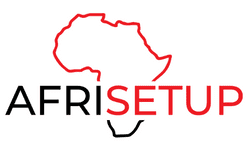

-
Employer of Record South Africa
- What is an Employer of Record?
-
South Africa Employment Laws: Compliance & Regulations
- 1. Employment and Labor Laws in South Africa
- 2. Non-Disclosure Agreements (NDAs)
- 3. Employment Contracts in South Africa
- 4. Payroll and Tax Guide for South Africa
- 5. Individual Tax Income Contributions
- 6. Employee Benefits & Leave
- 7. Work Permits and Visas in South Africa
- Employer of Record vs PEO
- Employer of Record vs. Staffing Agency
- Employer of Record vs. Common Law Employer
- Why Choose Afrisetup as Your Employer of Record South Africa
- Services Offered by Afrisetup EOR South Africa
- FAQs on EOR in South Africa
Employer of Record South Africa
As the employment workforce evolves, hiring techniques are equally changing. Many employers are now exploring the global talent pool as long as they work with the best of the best. Every country offers something unique based on its cultural perspective, education, population, and workforce trends.
South Africa has become a popular hub for many employers across the globe due to its business-friendly environment, diverse workforce, competitive wage structure, well-developed infrastructure, and substantial English-speaking population. However, to navigate the legal and administrative complexities, the most effective way of hiring employees without a legal entity is through an employer of record South Africa.
For more context, this short video gives you a glimpse of what EOR South Africa is all about.
What is an Employer of Record?
In simple terms, an EOR is a third-party organization that legally employs workers on behalf of the company; the client company retains operational control over its employees. This solution is particularly beneficial to foreign companies wishing to enter the South African market seamlessly without setting up legal entities.
South Africa Employment Laws: Compliance & Regulations
1. Employment and Labor Laws in South Africa
South Africa is governed by strict labor laws to protect employees, and it’s key for your company to understand these regulations before hiring an EOR. Below is an overview of key legal frameworks and essential aspects of employment contracts in South Africa:
● Basic Conditions of Employment Act (BCEA)
It defines minimum working standards, including working hours, leave, minimum wage, and termination procedures. It ensures fair treatment and fundamental rights for employees.
● Labour Relations Act (LRA)
Governs employee rights from unfair dismissal and sets dispute resolution rules. It promotes fair labor practices and safeguards workers’ rights.
● Employment Equity Act (EEA)
It promotes equal opportunities in hiring and workplace policies. It encourages businesses to implement affirmative action to ensure equal opportunities.
● Unemployment Insurance Fund (UIF)
Employers must contribute to the UIF, which provides financial support to employees who lose their jobs and offers a safety net during unemployment.
● Occupational Health and Safety Act
Mandates workplace health and safety standards for employers.
2. Non-Disclosure Agreements (NDAs)
In South Africa, the two main types of non-disclosure agreements (NDAs) are:
- Unilateral NDA: In this agreement, one party agrees to keep specific information confidential while the other can use it. This is common in business transactions or partnerships where sensitive information is shared.
- Mutual NDA: Both parties agree not to disclose shared information. This is used when exchanging confidential information between parties who want to protect each other’s secrets.
3. Employment Contracts in South Africa
When creating employment contracts in South Africa, it’s essential to consider the following regulations to ensure compliance.
Working Hours
- Standard workweek: 45 hours
- Maximum per day: 9 hours (5-day workweek) or 8 hours (more than 5 days)
- Overtime: Limited to 3 hours per day or 10 hours per week, paid at 1.5 times the regular wage
- Weekly rest: Minimum of 36 consecutive hours each week
Probation Period
A trial period of up to 3 months allows employers to assess new hires before confirming employment. This period can be extended if necessary, and employers must allow employees to improve their performance before termination.
Termination & Severance
Employees must receive a written notice or payment in lieu of notice.
- 1 week for less than 6 months
- 2 weeks for 6 months to 1 year
- 4 weeks for over 1 year
- Employers must issue a certificate of service upon termination.
4. Payroll and Tax Guide for South Africa
- Fiscal Year: South Africa’s fiscal year runs from March 1 to February 28/29 and is used for tax and financial reporting.
- Payroll Cycle: Salaries are paid monthly, with most employees receiving their wages by the 25th of each month.
- Minimum Wage: The minimum wage in South Africa is 27.58 ZAR ($1.46) per hour, which amounts to approximately 4,397 ZAR per month for a standard 40-hour workweek.
- Paid Time Off: Employers and employees can also agree to paid time off if an employee works on a Sunday, but it must be at the higher rate of 150%. Collective agreements may regulate the legal salary range.
- Bonus Payments: While a 13th-month salary is not mandatory, many employers offer a
bonus in December as a common practice.
5. Individual Tax Income Contributions
Personal income tax ranges from 18% to 45%. Every employer should deduct PAYE from their employees’ salaries monthly and pay it to SARS on their behalf.
South Africa Personal Income Tax Table 2024/2025
| Income (ZAR) | Tax Rate |
| 1 - 237,100 | 18% |
| 237 101 - 370 500 | 42 678 + 26% of taxable income above 237,100 |
| 370 501 - 512 800 | 31% of taxable income above ZAR 370,500 |
| 512 801 - 673 000 | 121,475 + 36% of taxable income above ZAR 512,800 |
| 673 001 - 857 900 | 179,147 + 39% of taxable income above ZAR 673,000 |
| 857 901 - 1 817 000 | 251,258 + 41% of taxable income above ZAR 857,900 |
| 1 817 001 and above | 644,489 + 45% of taxable income above ZAR 1,817,000 |
6. Employee Benefits & Leave
- Maternity Leave: Pregnant employees get 4 months of unpaid leave, with UIF providing compensation.
- Family Responsibility Leave: Employees are entitled to three days of paid family responsibility leave per year. This leave covers events like childbirth, caring for a sick child, or mourning of an immediate family member.
- Annual Leave: Employees working 24+ hours per month receive 21 days of paid leave.
- Public Holidays: Employees working on public holidays receive double pay or an extra day off, depending on the employee agreement. The Public Holidays Act grants the following paid holidays:
South Africa Public Holidays
| SA Public Holiday | Date of the Year |
| New Year's Day | January 1 |
| Human Rights Day | March 21 |
| Good Friday | 7th April |
| Family Day | 10th April |
| Freedom Day | April 27 |
| Worker's Day | May 1 |
| Youth Day | June 16 |
| National Women's Day | August 9 |
| Heritage Day | September 24 |
| Day of Reconciliation | December 16 |
| Christmas Day | December 25 |
| Day of Goodwill | December 26 |
During election years, a 13th paid public holiday is usually declared to allow employees to vote in local elections. If a holiday falls on a Sunday, the following Monday is considered a public holiday.
- Sick Leave: Employees get up to 30 sick days over a 3-year period. Within the first 6 months, sick leave is earned at 1 day per 26 days worked. Unused sick leave is not carried over to the following year.
- Health & Retirement: There is no official retirement age, but many employers offer private pension plans with shared contributions.
Understanding these laws helps businesses create fair work environments and avoid legal risks. Employers can also work with a compliance partner to navigate regulations effectively.
7. Work Permits and Visas in South Africa
Employers hiring foreign workers must navigate the country’s work visa system. Each visa requires specific documentation and compliance with the Department of Home Affairs. Employers must ensure proper sponsorship and assist employees with applications and
renewals.
Employer of Record vs PEO
The EOR is the legal employer responsible for handling compliance, payroll, and benefits. They operate without sharing employer responsibilities with the client. A PEO (Professional Employer Organization) acts as a co-employer, sharing obligations and liabilities with the client company. This setup allows for combined resources for HR and payroll, but requires a closer partnership.
Both have similar functions but unique distinctions, and distinguishing the two can help you decide which to choose based on your company’s needs and structure.
Here’s a table distinguishing the two:
| Features | Employer of Record (EOR) | Professional Employer Organization (PEO) |
| Requires Local Entity | (No) | Yes |
| Legal Employer | Yes | No |
| Payroll & Tax Filing | Yes | Yes |
| Handles Compliance | Yes | Yes, but through co-employment |
| HR Support | Yes | Yes |
Employer of Record vs. Staffing Agency
The EOR is the legal employer and handles all employment responsibilities, while the client company controls the employees’ daily tasks. Staffing agencies supply temporary workers. They manage the hiring process but usually do not handle payroll or benefits for long-term positions.
Choosing between an EOR and a staffing agency depends on whether you need employees for a short period or the long term.
Employer of Record vs. Common Law Employer
An EOR legally employs workers through a contract, while the client company runs daily operations. The standard law employer model refers to businesses that directly hire employees and take care of all employment duties.
These differences can impact liabilities, tax responsibilities, and worker rights.
Why Choose Afrisetup as Your Employer of Record South Africa
Choosing Afrisetup as your Employer of Record (EOR) means you can focus on growing your business while we manage the complexities of employment compliance. Here are six benefits of partnering with us:
1. Expert Guidance
We stay current with South Africa’s labor laws, providing you with reliable advice to ensure you follow all employment regulations. This helps you avoid costly penalties and legal issues.
2. Streamlined HR Management
We handle all your HR needs, including managing employees, payroll, taxes, and legal compliance. This allows you to concentrate on what you do best without HR headaches.
3. Reduced Compliance Risks
Letting us handle your employment compliance reduces the risk of non-compliance. We have the expertise to spot and fix compliance issues, helping you avoid fines and legal disputes.
4. Cost-Effective Solutions
Partnering with us can save your business money. Instead of building an expensive in-house HR team, you can use our services, tailored to your needs, for a fraction of the cost.
5. Customized Services for Your Business
Whether hiring your first employee or managing a large team, our EOR services are customized for your unique situation. We understand that every business is different and will provide solutions that fit seamlessly.
6. Training and Resources
We offer training and educational resources for your HR team, giving them the knowledge to maintain compliance effectively.
Services Offered by Afrisetup EOR South Africa
We offer a range of services to simplify your HR processes:
1. Hiring and Onboarding
We help recruit and onboard employees while following all labor laws. We verify worker eligibility and manage all necessary paperwork.
2. Payroll Management
We handle payroll calculations and deductions, ensuring employees are paid accurately and on time while complying with tax regulations.
3. Tax Compliance
We manage all your tax needs, from filing returns to remitting payments on your behalf, ensuring you comply with tax laws.
4. Benefits Administration
We manage employee benefits such as health insurance and retirement plans, ensuring that all necessary benefits are provided according to the law.
5. Legal Compliance
We ensure that you meet all legal employment obligations, including labor laws, immigration support for any foreign workers, health and safety regulations, and proper employment contracts.
FAQs on EOR in South Africa
An EOR allows you to hire employees legally without opening a local entity, ensuring full compliance with tax and labor laws.
An EOR in South Africa takes on the legal responsibilities of employing staff while the client company retains control over the employee’s day-to-day activities.
Costs vary based on the services provided and the complexity of payroll and compliance needs. However, it’s generally more cost-effective than setting up a legal entity.
An EOR must comply with laws such as the Basic Conditions of Employment Act (BCEA), the Labour Relations Act, the Employment Equity Act, and the Occupational Health and Safety Act. These laws govern wages, working conditions, termination procedures, and employee rights.
Employees are subject to Pay-As-You-Earn (PAYE) tax, Unemployment Insurance Fund (UIF) contributions, and the Skills Development Levy (SDL). An EOR ensures all taxes are deducted and remitted to the South African Revenue Service (SARS).
Employees are entitled to benefits such as:
- UIF (Unemployment Insurance Fund)
- Paid annual leave, sick leave, and maternity leave
- Workers’ Compensation (COIDA)
- Retirement fund and medical aid (if included in company benefits)
Yes, Afrisetup ensures that employee terminations comply with South African labor laws and follow due process regarding notice periods, severance pay, and fair dismissals.
The national minimum wage is R27.58 per hour as of 2024 (subject to updates). An EOR ensures salary compliance according to industry regulations.
Yes, businesses can start with an EOR and later establish a South African entity. Afrisetup can assist with the transition and transferring employees to the new entity.
Industries that frequently use EOR services include:
- Technology & IT
- Finance & Banking
- Healthcare & Pharmaceuticals
- Manufacturing & Engineering
- Retail & E-commerce
- Consulting & Professional Services
Conclusion
Expanding your business into South Africa offers access to a diverse and skilled workforce, presenting significant growth opportunities. However, understanding and complying with local employment laws can be complex.
Partnering with an employer of record South Africa simplifies this process by managing recruitment, compliance, and payroll, allowing you to focus on your core business objectives. With the proper support, hiring in South Africa becomes a seamless and rewarding endeavor.
Consult us today to learn about hiring in South Africa
